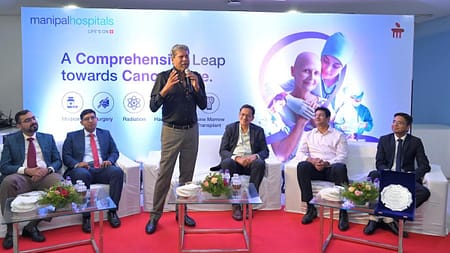Mr. Kishan Tiwari, Co-Founder and CEO of TSAW Drones
As a drone technology and drone development company, a more inclusive environment needs to be created for prototyping, testing and making the product market ready. Since drones share similarities with the aerospace domain, testbeds are expensive and limited, prototyping is costly and limited, and prototyping is costly. Government support in this field would give a great boost to the industry. As a drone logistics provider service, linked incentives will be a boost. And more clarity on beyond visual line of sight operation would promote investment in the industry.
As a drone manufacturer, I believe PLI schemes should have a plan for indigenous technology. The incentives post a particular tenure should be given only if the manufacturer has indigenized the production at a specific level.
Mr. Ashish Kukreja, Founder & CEO of Homesfy.in
Well, let’s make it simple. This budget framework involves three key stakeholders: consumers (Janta), industry, and government. So what’s going on with these stakeholders as we approach this budget? The government had its bingo moment regarding housing affordability and tax collections. The sector responded well to reforms like PMAY and GST reduction. The finance minister would love to see a continuation of it. Consumers are facing a bit of pressure due to rising interest rates and would like relief. The industry is showing signs of life, but growth is uneven and unpredictable due to disruptions. We would like to get more support to keep investing in sector growth.
So our expectation/prediction based on the above framework is: Raising the tax deduction limit for home loans from ₹2 lakhs to ₹5 lakhs per year can be a good relief for consumers. Increasing the limit on affordable housing from ₹45 lahks to ₹65 lakhs in big cities will also boost mid-segment housing. Though not connected directly, any infrastructure boost to connect city centers with the outskirts will help increase the sector’s growth. Widening the scope of NCLT & SWAMIH funds for faster resolution of stuck projects. GST reforms will make it easier for developers to pass on benefits to consumers. In short, the sector deserves a simple tax structure for all stakeholders. Let some parts of the wish list be on the waitlist for future budgets.
MR Arunabh Sinha, Founder of UClean
“A hefty 18% GST on a daily essential activity like laundry is unreasonable. The majority of the business comes from the unorganized sector, which comprises local Dhobis, ironing shops, and micro laundry establishments serving a limited locality, accounting for 96% of the total. Just like any other daily necessity like dairy, laundry and dry cleaning falls under the same bracket of necessity as triggered by the pandemic hygiene is everyone’s right rather than a luxury activity, so that’s why it should attract a rate of 5% instead of an exorbitant GST rate. As the sector has already been battling with sizable losses brought on by the pandemic, this sector needs further support from tax deductions. To lessen the burden on households, the tax system needs to be modified and extra effort must be made because the budget has always overlooked the laundry or dry cleaning market sector.”









